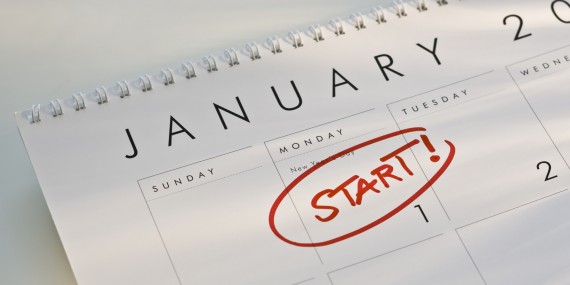
My father was a strong believer in New Year resolutions. He said it was important to examine your life periodically and ask: “What can I be doing better?” My father died last February at age 94. His death made me think about his words and resolutions that I might make for 2016.
Resolution Number One: Being hopeful.
That sounds simple, but being hopeful often is difficult when dealing with mental illnesses.
When my book, CRAZY: A Father’s Search Through America’s Mental Health Madness, was published, there were 365,000 individuals with mental illnesses in American jails and prisons. Ten years later, some estimate that figure at 500,000. A recent study found that persons with mental illnesses are the fastest growing subpopulation inside California prisons. Every other segment in those institutions has decreased. But the proportion of inmates with serious mental illnesses has increased from 19 percent in 2007 to 26 percent today.
During 2015, I wrote several blogs about two prisoners in Virginia who died while in custody: Jamycheal Mitchell and Natasha McKenna. Mitchell died in a Portsmouth jail waiting for a bed to become available in the state hospital after he was jailed for allegedly stealing $5.05 worth of snack foods from a convenience store. The 24 year-old had schizophrenia. Natasha McKenna, a 37 year-old Alexandria, Va. mother who had bipolar disorder, died after being stunned four times with a 50,000 volt Taser by deputies while being restrained in jail.
It is easy to become discouraged when you read a study that reveals the subpopulation of persons with mental illnesses in our jails and prisons is increasing. It is frustrating when reporters no longer consider it news that our jails and prisons have become our defacto mental asylums. It is demoralizing when a young man dies in jail waiting for mental health treatment in a state hospital, when a mother who is psychotic is shocked with a Taser rather than being admitted into a treatment program, when one-out-of-four Americans fatally shot by the police have a mental illness, when each year individuals with mental illnesses and co-occurring addictions freeze to death homeless on our streets dying in plain sight.
How can you not feel defeated?
The answer is hope.
Do not let these stories break your spirit. Do not let them dissuade you. Do not let them defeat you. Instead, use these stories to light a fire in your belly. Use them to raise your level of outrage. Use them to make you more determined. Every grim statistic gives us an opportunity to demand change. Every horrible story gives us the opportunity to educate the public. Seize the moment to speak out. Seize the moment to become more resolved. Seize the moment to demand reforms.
Why should you feel hopeful? Because you must have hope if you want to help others and help change our badly broken system.
Writer Hal Lindsey said it best:
“Man can live about forty days without food, about three days without water, about eight minutes without air…but only for one second without hope.”
Last year in January, the memoir that I helped Jessie Close write about her life — RESILIENCE: Two Sisters and a Story of Mental Illness — was published and there is a quote in my book that has become one of my favorite passages. It was not said by Jessie or by her famous actress sister, Glenn Close, but by Jessie’s middle child, Sander.
“It is difficult to describe what you witness when someone is in the throes of a psychotic breakdown. There is a distinct characteristic about someone’s eyes. It is a stare that pierces your soul. It is scary but it is even scarier when it is someone you love and you can feel and see the hell that they are in and there is nothing you can do.
“I’ve always thought that the more sensitive a person is, the more susceptible they are to mental illnesses. A sick joke in our universe is that the more it allows a person to see its beauty and deep connectivity, the more difficult it becomes for that person to maintain good mental health. In our culture, we tend to treat this trade off with a fierce double standard. As long as they are sharing with us beautiful insights into humanity, we will love and cherish them as heroes, but if they fall into substance abuse, depression or any other form of mental illness, we tend to say, ‘It’s not our problem.’
“Classically, these are artists, musicians, writers, etc., but, of course, they come in all sorts, unsung or not. These people tend to add value and meaning to our lives. At their best, they are the types who make us laugh and cry, to learn and to take risks and to love. They are brave and it angers me that as a society, we abandon them when their skies darken.”
Individuals with mental illnesses are our brothers and sisters, parents and children, friends and relatives. They are us and the stakes are too high for us to become discouraged and defeated. This is why I am determined to become more hopeful in 2016.
I hope you join me. Let hope fuel your advocacy for better mental health.



